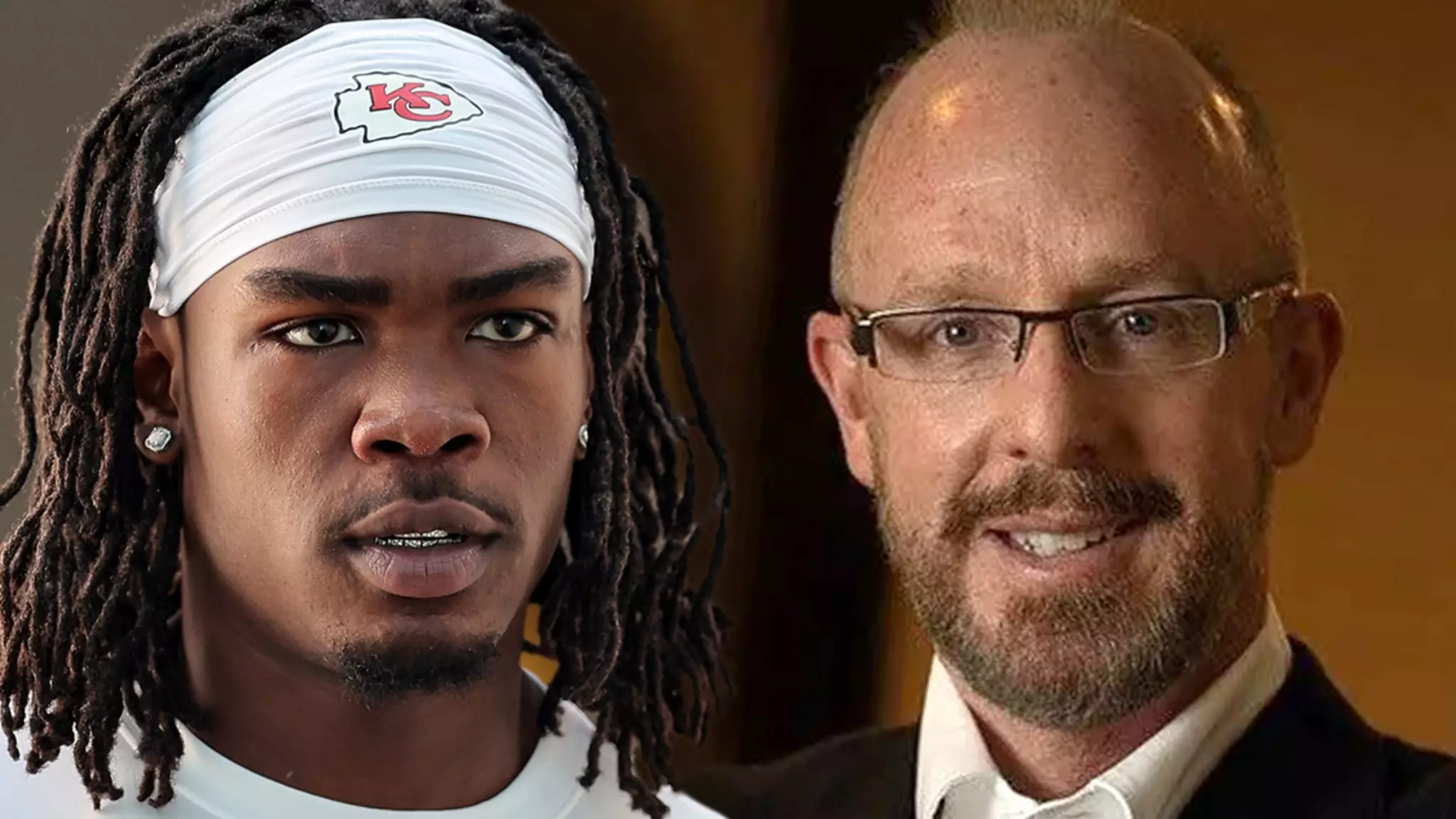The ongoing saga surrounding Kansas City Chiefs receiver Rashee Rice starkly exposes the tension between personal accountability and professional obligation. Despite being embroiled in a serious legal controversy involving a high-speed car crash, Rice’s reported participation in the team’s early games prompts questions of morality, legality, and league standards. When the judiciary is still deliberating over civil liabilities—particularly a reportedly substantial $1 million settlement—the NFL’s decision to allow him on the field appears jarring. This situation underscores whether sports organizations should prioritize immediate athletic contributions over fundamental principles of justice.
The challenge lies in reconciling the athlete’s desire to maintain his career with the moral imperative of ensuring victims receive due justice. Rice’s case, especially with allegations of fleeing the scene and racing at catastrophic speeds, evokes a moral dilemma: can the league justify such a decision, or does it risk endorsing a dangerous precedent? While teams often overlook legal misconduct during the season, endorsing continued participation amidst unresolved accusations raises uncomfortable ethical questions about what the NFL values more—winning or integrity.
The Legal Quagmire: A Man’s Right to Work or a Felon’s Room for Redemption?
Central to this controversy is Rice’s legal standing. Although he has pleaded guilty to felonies related to the crash—namely racing on a highway causing bodily injury and causing serious bodily injury—the NFL’s perceived inertia in punishing him reflects a broader industry pattern. Unlike other cases where players are swiftly suspended following legal verdicts, Rice’s team and the league seem to tolerate ambiguity, perhaps influenced by his status as a promising receiver or the league’s commercialization priorities.
The conflicting signals send a troubling message: that a professional athlete’s career might be deemed more valuable than the victims’ suffering and the criminal acts involved. The fact that he is reportedly allowed to “play,” even while waiting for a court resolution, makes one wonder if the league is subtly incentivizing misconduct or simply high on the hope of redemption, irrespective of moral considerations. It raises the question: Is the NFL holding its players accountable, or is it simply crafting a narrative that keeps talent on the field while toes the line of ethics?
The League’s Double Standard: Justice for Victims or Protecting Assets?
A distinctive aspect of this case is the apparent disparity in treatment between players involved in legal controversies. The NFL’s delayed response contrasts sharply with its swift suspension of figures like Jordan Addison, immediately after his legal issues unfolded. Critics argue this inconsistency demonstrates a double standard—favoring star power and competitive advantage over justice and fairness.
Furthermore, the legal representative for the crash victim, Kathryn Kuykendall, has publicly condemned Rice’s presumed eligibility, hinting at a systemic failure to hold players accountable. His frank criticism underscores a critical failure within the league to prioritize victims over marquee talent. The implication is that the league may be more concerned about maintaining its entertainment product and marketability than upholding moral standards and respecting victims’ rights. This inequality not only diminishes public trust but risks normalizing reckless behavior among athletes, foisting a dangerous message that fame can shield misconduct.
Public Perception and the Future of Accountability in Sports
The ongoing controversy surrounding Rashee Rice echoes a broader societal debate about accountability and the moral responsibilities of public figures. Fans and critics alike are questioning whether the league’s actions— or lack thereof—serve as a deterrent against reckless conduct or simply entrench a culture of impunity. When athletes with serious legal issues continue to perform, it risks trivializing issues of justice and safety, especially considering the severity of the alleged incidents.
Moreover, there’s a growing call for sports leagues to reevaluate their policies, fostering an environment where moral and legal standards are given precedence over the desire for quick wins and season continuity. The NFL’s handling of Rice’s case could either become a moment of reckoning—a catalyst for systemic change—or a missed opportunity that further diminishes its credibility. The fact that the league aims to delay disciplinary decisions until after at least three crucial games suggests it views legal matters as secondary to competitive imperatives, a stance that many find troubling.
The Power of Leadership and Ethical Accountability
Ultimately, the Rashee Rice controversy spotlights the urgent need for league leadership to demonstrate backbone. Sport organizations wield immense influence—not just over players, but over societal norms and expectations. By allowing Rice to participate in games before finalizing legal judgments, the NFL risks eroding public trust and sending a chilling message about what is acceptable behavior for athletes.
The league must decide whether it wants to act as a moral compass or remain complicit in questionable choices. Leadership should prioritize justice; this means implementing clear, unwavering policies that suspend players involved in serious allegations until appropriate legal clarity is achieved. Such a stance would reaffirm that integrity and accountability are non-negotiable—values that should underpin any institution, sports included—especially when lives have been forever altered by reckless actions.

